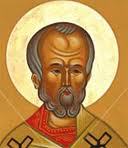*
Earl Doherty’s Response to Bart Ehrman’s Case Against Mythicism – Pt. 11
Three Voices on the Historical Jesus – No. 1: Papias
.
COVERED IN THIS POST:

- Papias’ Exposition of the Sayings of the Lord as revealed by Eusebius
- Papias’ uncertain chain of oral transmission
- Had Papias read any Gospels?
- Papias’ “Mark” and “Matthew”: not the canonical Gospels, and not read by Papias
- Papias quotes nothing from any version of our Gospels
- The bizarre things Papias does give us as sayings of the Lord
- By c.125, no written Gospels have reached the bishop of Hieropolis in Asia Minor
.
* * * * *
Evidence for Jesus from Outside the Gospels
(Did Jesus Exist? pp. 98-101)
.
PAPIAS
.
Ehrman now turns to three Christian writers of the late first and early second centuries who “convey information about the historical Jesus and certainly attest to his existence” in alleged ways which are “independent” of the Gospels. The first is Papias, a Christian bishop in Asia Minor writing around 120-130 CE, for whom we rely on Eusebius two centuries later, since Papias’ one known work is lost.
Despite Eusebius’ judgment that Papias was “a man of very small intelligence,” what is quoted from his Expositions of the Sayings of the Lord is supposed to represent good evidence of an historical Jesus. Ehrman quotes from Eusebius’ quote of Papias introductory words (History of the Church, III, 39.3-4), in which we learn:
that Papias will give an orderly account “of all the things I carefully learned and have carefully recalled from the elders. . . . Whenever someone arrived who had been a companion of one of the elders, I would carefully inquire after their words, what Andrew or Peter had said . . .
Juggling Elders, Companions and Disciples
Of key interest here is the question of what Papias meant by these “elders”. Scholars will admit to an ambiguity, that “elders” may not refer to the disciple followers of Jesus subsequently named (as some older scholars have preferred to read it), but only to earlier Christians who themselves had known those disciples of Jesus. (That is, “inquire after their words” refers back to the preceding “elders,” but not to the men he goes on to name, which are two different groups and layers of tradition.) This would give us a chain of:
disciples → elders → companions of elders → Papias
And indeed, such a chain would make better sense given the amount of time between the disciples’ activity supposedly following Jesus’ death and Papias himself.
that Papias enquired of anything said by “Andrew or Peter or Philip or Thomas or James or John or Matthew” or “any of the other disciples of the Lord.” But then he goes on to refer to things said by “Aristion and the elder John, disciples of the Lord.”
This is exquisitely confusing. Continue reading “11. Earl Doherty’s Response to Bart Ehrman’s Case Against Mythicism: Three Voices . . . Papias”
